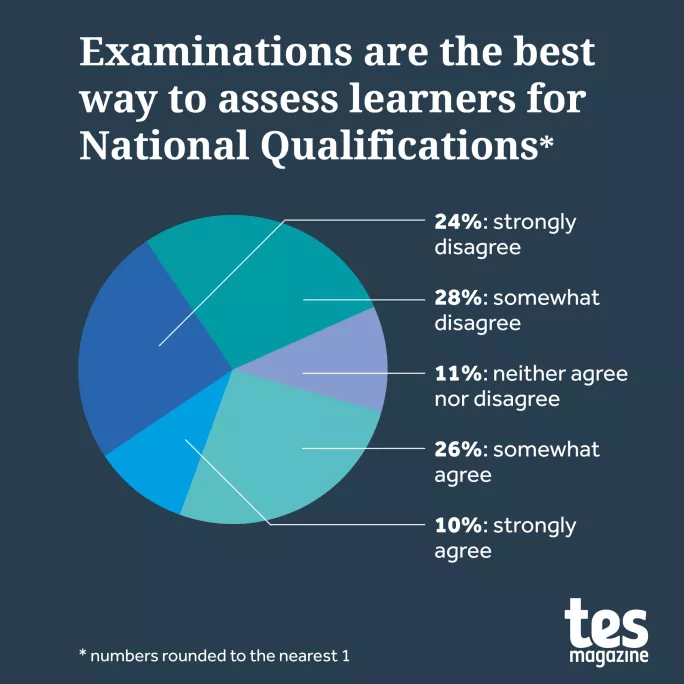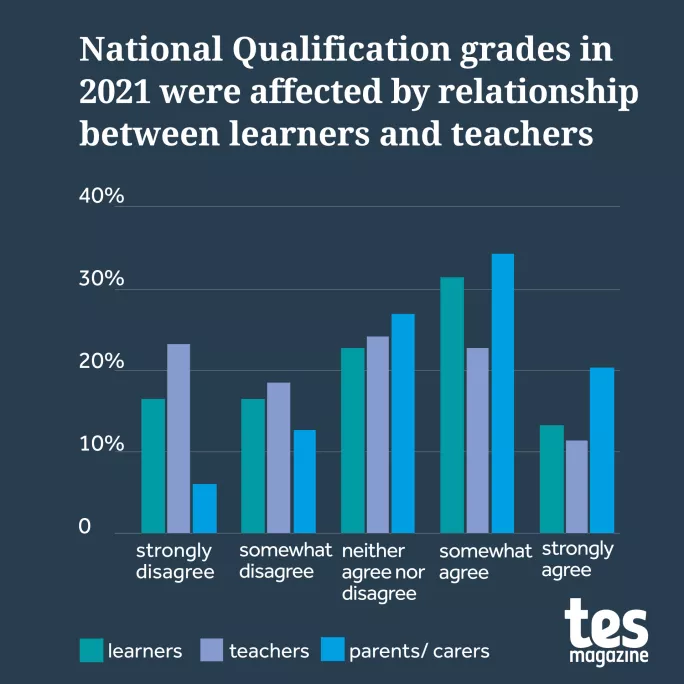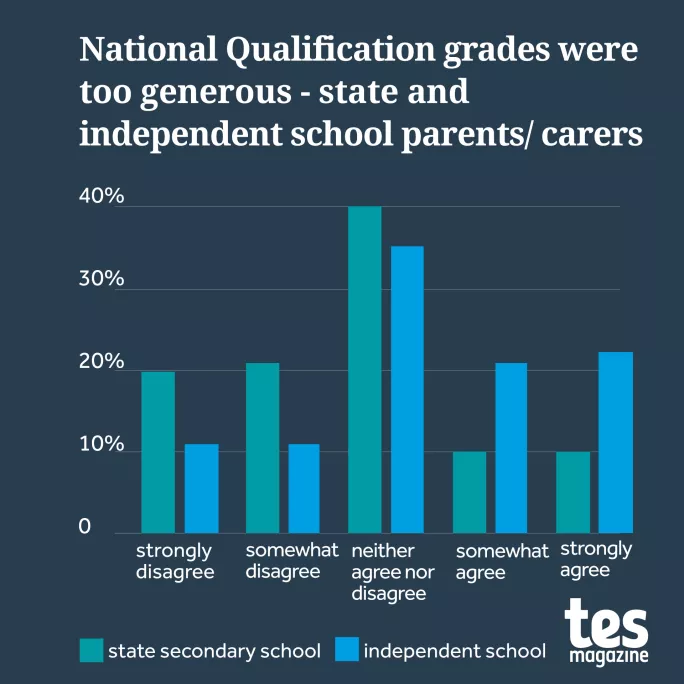Scottish exams reform: appetite for change is ‘overwhelming’

A new survey of more than 900 people - including students, teachers, parents and employers - has found “an overwhelming sense” that the assessment system in Scotland needs to be reformed.
However, the research adds that the findings were “not a straightforward call” for more or fewer exams, or greater teacher assessment.
The survey - which is part of a research programme established by the Scottish Qualifications Authority (SQA) to investigate views on qualifications in Scotland - finds there is “support for a national system that includes examination and teacher assessment”, and which provides “optionality and flexibility”.
However, it also highlights that those respondents linked to independent schools had less faith in teacher-determined grades. The report states: “Those associated with independent schools were least likely to view teacher assessment as fair, a finding which may have been caused by grade inflation and therefore [leading to] less distinction between the results in independent and state schools.”
- More SQA research published today: 2021 exam replacement made teachers consider quitting
- Background: OECD review paves way for qualifications overhaul
- Exclusive: Qualifications review lead outlines what happens next
Overall, the research - conducted by the universities of Glasgow and Oxford, and the SQA - found 80.5 per cent of respondents were in favour of making changes to the assessment of national qualifications, which include National 5, Higher and Advanced Higher. Conversely, 19.5 per cent were not in favour of change.
There was “no consensus” on whether exams were the best way to assess learners for national qualification, it says.

The most important purpose for national qualifications was identified as providing information for the student on what they know and can do.
“Use of assessment data for evaluation of education systems was not prioritised by stakeholders,” according to the report.
Most respondents agreed with statements that schools and learners should have some choice of assessment for national qualifications (64 per cent and 59 per cent respectively).
The report into the survey findings, published today, states: “A large majority (four out of five respondents) were in favour of reform of the assessment system. However, this was not a straightforward call for more or less examinations, or a desire for teacher assessment. Instead, there was a groundswell of support for a learner-focused system that provided optionality and flexibility to better adapt to individuals’ strengths and circumstances, as well as to guard against any detrimental effects of assessment upon learners’ mental health.”
The research report also says this “overwhelming desire for change” was evident in the comments left by those who took part in the research.
It says “respondents repeatedly expressed a view that the current system was overly reliant on exams and there were calls for greater diversification of the assessment methods”.
The report adds: “Respondents felt that there should be more trust in teachers, with the argument that they knew their students best. This included more continuous assessment for students, with some participants suggesting that would take the pressure off students and would help those students who responded better to different ways of testing.”
However, the impact of any changes on teacher workload were highlighted and moderation was also considered important: 45 per cent of respondents agreed that national qualifications grades in 2021 were affected by relationships between students and teachers. Meanwhile, parental pressure around teacher assessment was reported as a concern by 26 per cent of respondents.

The report says: “A sizeable minority considered that the relationships between teachers and learners, and parental pressure, influenced grading. These findings point to the need for a well-developed system of moderation.”
On independent schools, the research found parents and carers associated with independent schools were more likely to agree that national qualification grades were too generous (43 per cent), compared with those associated with state schools (20 per cent).

Respondents associated with independent schools were also more likely to report feeling the grades received by students in 2021 were unfair: 38 per cent of respondents from independent schools thought the 2021 results were “fair” compared with 43 per cent who thought they were “unfair”.
When it came to the overall results, a larger proportion of respondents thought the 2021 results were fair (46 per cent) as opposed to unfair (36 per cent).
The survey findings are one of a number of pieces of research, published by the SQA today, which aim to build a picture of the impact of the “alternative certification model”, or ACM, put in place in 2021 - and also the wider views on qualifications held in Scottish society.
The research, Perceptions of Assessment Standards in Scotland, was conducted by teams from the University of Glasgow, the University of Oxford and the SQA.
The full research report can be accessed on the SQA website.
You need a Tes subscription to read this article
Subscribe now to read this article and get other subscriber-only content:
- Unlimited access to all Tes magazine content
- Exclusive subscriber-only stories
- Award-winning email newsletters
Already a subscriber? Log in
You need a subscription to read this article
Subscribe now to read this article and get other subscriber-only content, including:
- Unlimited access to all Tes magazine content
- Exclusive subscriber-only stories
- Award-winning email newsletters
topics in this article



